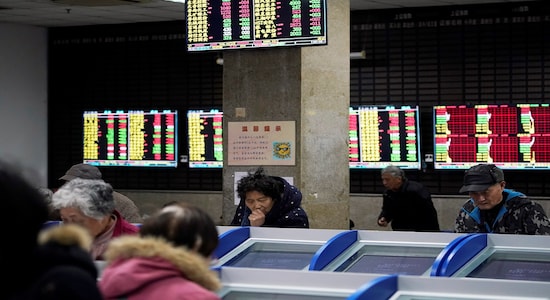
 1 / 10
1 / 101. Asia: Stocks in Asia Pacific were mixed in Monday morning trade after the World Health Organization (WHO) reported over the weekend a record high number of coronavirus cases in 24 hours. In Japan, the Nikkei 225 rose 0.36 percent in early trade as shares of conglomerate Softbank Group jumped about 1.5 percent while the Topix index added 0.45 percent. South Korea’s Kospi advanced 0.58 percent. Meanwhile, shares in Australia declined, as the S&P/ASX 200 slipped 0.15 percent. Overall, the MSCI Asia ex-Japan index traded 0.05 percent higher. (Image: Reuters)

 2 / 10
2 / 102. US: U.S. stock futures traded slightly higher on Sunday night as Wall Street tried to build on the momentum from last week’s solid performance. Dow Jones Industrial Average futures rose 95 points, or 0.4 percent. S&P 500 futures gained 0.3 percent and Nasdaq-100 futures advanced 0.4 percent. Wall Street was coming off strong gains after a shortened trading week due to the July Fourth holiday. The Dow and S&P 500 rose 3.3 percent and 4 percent, respectively, last week and the Nasdaq advanced 4.6 percent in that time. (Image: AP)
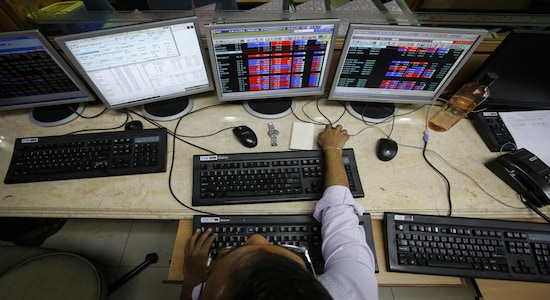
 3 / 10
3 / 103. Market At Close On Friday: The Indian market pared some morning gains but still ended higher on Friday, making it the third straight week to end with gains. The Sensex ended 178 points or 0.50 percent higher at 36,021 while the Nifty50 index ended at 10,603, up 52 points or 0.49 percent. Broader markets inched slightly higher than the benchmarks, as Nifty Midcap 100 and Nifty Smallcap 100 ended 0.66 percent and 0.22 percent higher. (Image: Reuters)

 4 / 10
4 / 104. Crude Oil: Crude prices fell on Friday as the resurgence of the coronavirus globally and in the United States, the world’s largest oil consumer, dimmed the prospects of fuel demand recovery. Brent crude futures were down 37 cents, or 0.9 percent, at $42.77 a barrel as of 0042 GMT, and U.S. West Texas Intermediate (WTI) crude futures fell 34 cents, or 0.8 percent, to $40.31 a barrel. Both benchmarks rose more than 2 percent on Thursday, buoyed by stronger-than-expected U.S. jobs data and a fall in U.S. crude inventories. For the week, Brent is up 4.3 percent and WTI is up 4.7 percent. (Image: Reuters)
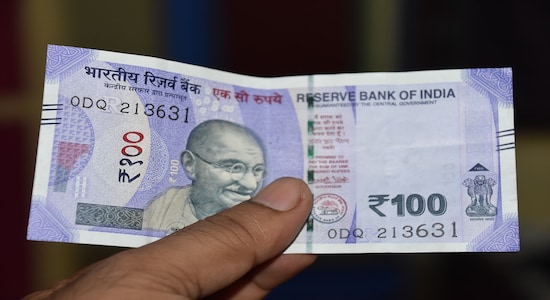
 5 / 10
5 / 105. Indian Rupee: The Indian currency appreciated 38 paise to settle at 74.66 against the US dollar on Friday tracking weakness in the greenback and gains in the domestic equity market amid optimism over potential COVID-19 vaccine. Forex traders said investors were bullish on emerging market assets following encouraging vaccine test results. Moreover, positive domestic equities, steady crude oil prices and weak US currency supported the local unit. The rupee opened at 74.60, and settled at 74.66 against the US dollar. (Image: Reuters)

 6 / 10
6 / 106. Finance Ministry On Easing Compliance: In the fourth years of the goods and service tax (GST) regime, the government is determined to focus on the simplification of tax administration and ease of compliance for taxpayers. The government believes that facilitating ease of compliance would result in significant growth in revenue collections, with better and satisfying experience for the GST taxpayers. Finance minister Nirmala Sitharaman, who is also the chairperson of the GST Council, on July 1 said, “The government is committed to continue on these [simplification and compliance-related] reforms in future as well to facilitate taxpayers. (File Photo: IANS)
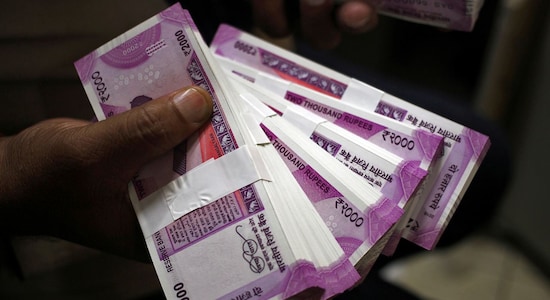
 7 / 10
7 / 107. Surge In E-way Bills After Lockdown: E-way bill generation, a key indicator of economic activity in the country, has seen a steady rise as restrictions have been eased following the first two phases of strict lockdown in the wake of the coronavirus pandemic. More than 4.27 crore e-way bills were generated in June 2020 against average of 5.3 crore per month of the pre-COVID-19 period, a Goods and Services Tax Network (GSTN) press release said. Further easing of restrictions, which the government has labelled Unlock 2.0 and began in July, is likely to see the collection figures rise higher. E-way bill is required to be generated by a registered GST taxpayer for the movement of goods if the value of the consignment is more than Rs 50,000 for inter-state movement. For intra-state movement, limits vary from state to state. (Image: Reuters)
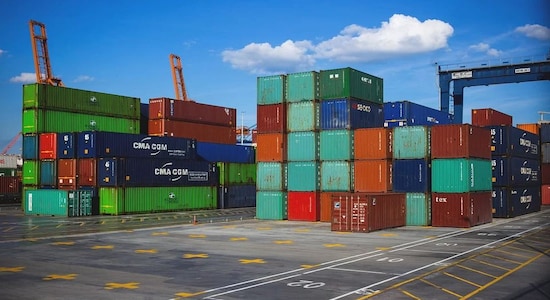
 8 / 10
8 / 108. Bankers On Demand Destruction Overseas: The COVID-19 pandemic has caused “demand destruction” in the overseas markets and it is likely to continue for the next few quarters, eminent bankers said on Saturday. The disruption will last for six to eight months before business starts to bounce back, they said. “There is huge demand destruction in the overseas markets,” MD of Exim Bank David Rasquinha said at a webinar. He said that in the years 2017, 2018 and 2019, Indian merchandise exports were robust, while exports of services were even stronger. “This was at a time when the Indian rupee had depreciated severely. In March 2020, export growth had fallen due to last-minute invoicing by the exporters, which was soon followed by the lockdown,” Rasquinha said. (Image: Reuters)

 9 / 10
9 / 109. Commerce Ministry On Replacing Logistics Law: The commerce ministry is considering to replace the multi-modal transportation of goods act with a full-fledged national logistics law with a view to promote growth of the sector, a senior government official said on Saturday. Special Secretary in the logistics division of the ministry, Pawan Agarwal said a National Logistics Efficiency and Advancement Predictability and Safety Act (NLEAPS) is under consideration and this law tends to define various participants of the logistics space and create a light regulatory ecosystem. Multimodal transportation includes a combination of more than one mode of movement, such as rail, road or sea, for end-to-end delivery of goods. (Image: Reuters)

 10 / 10
10 / 1010. WHO Halts HCQ, HIV Drugs: The World Health Organization (WHO) said on Saturday that it was discontinuing its trials of the malaria drug hydroxychloroquine and combination HIV drug lopinavir/ritonavir in hospitalised patients with COVID-19 after they failed to reduce mortality. The setback came as the WHO also reported more than 200,000 new cases globally of the disease for the first time in a single day. "These interim trial results show that hydroxychloroquine and lopinavir/ritonavir produce little or no reduction in the mortality of hospitalised COVID-19 patients when compared to standard of care. Solidarity trial investigators will interrupt the trials with immediate effect," the WHO said in a statement, referring to large multicountry trials that the agency is leading. (Image: Reuters)

